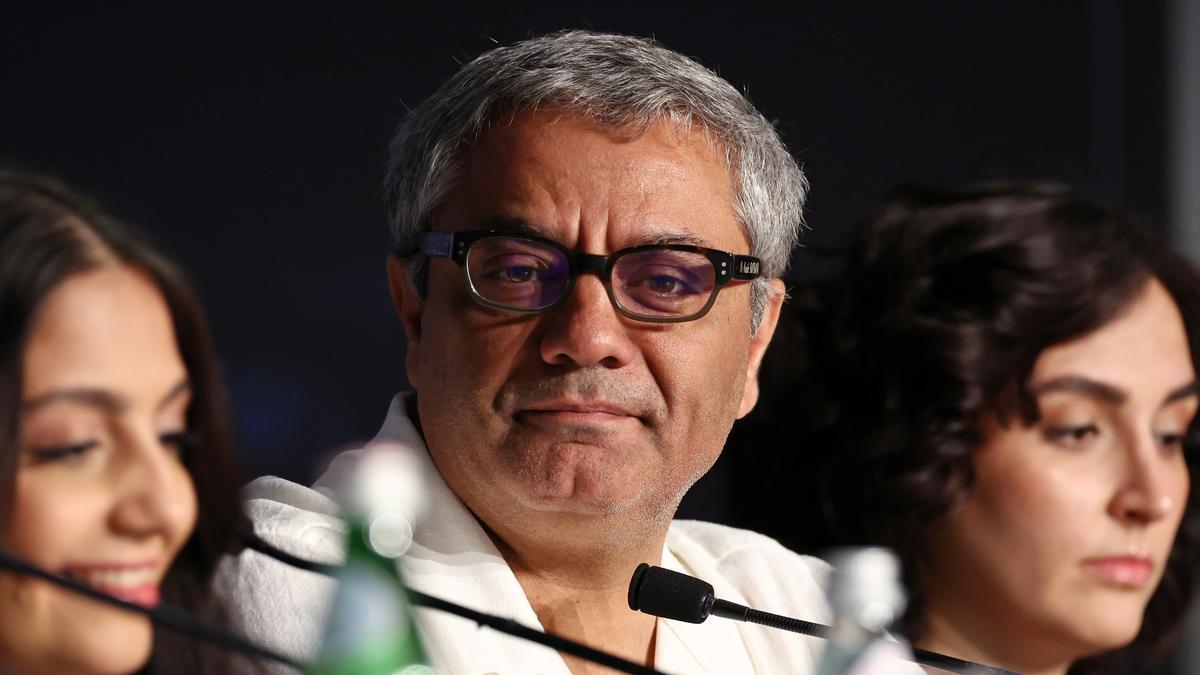
Iranian director Mohammad Rasoulof recalled the harrowing decision to either go into exile or face a prison sentence within mere hours. During a press conference at the Cannes Film Festival on Saturday, Rasoulof recounted the challenging moments that still resonate deeply with him. He is currently in the French Riviera town for the premiere of his critically acclaimed new drama, “The Seed of the Sacred Fig,” just two weeks after revealing he had fled Iran subsequent to an eight-year jail sentence announcement accompanied by flogging.
The urgency of his situation became apparent when authorities set a deadline of one week before his sentence was to be executed. Stating that things escalated rapidly, Rasoulof explained that the authorities had already become aware of his new film, compelling him to make an immediate choice. “I had to say to myself, well, do I want to be in prison, or should I leave Iran, geographic Iran, and join the cultural Iran that exists beyond its borders?” he recalled.
In a poignant and emotionally charged moment, Rasoulof described his decision-making process, which took only two hours. He spent that time pacing around his house, saying goodbye to his beloved plants. “It’s not an easy decision to take. It still isn’t easy even to talk about it today with you,” he confessed to journalists.
The Iranian regime has maintained a strict stance against Rasoulof and his work. This month, Iran’s culture minister Mohammad Mehdi Esmaili declared to state media that Rasoulof’s film was made illegally and announced a crackdown on films produced without official permits. The risks associated with his cinematic efforts are high, reflecting the fraught relationship between art and political authority in Iran.
“The Seed of the Sacred Fig” is a gripping narrative centered around a court official whose increasingly tight grip on his family life parallels the repression exemplified during the 2022 protests that erupted over the death of Mahsa Amini. Amini, a Kurdish woman, died after being detained by Iran’s morality police for allegedly violating dress codes. The film received an overwhelming response at Cannes, drawing the longest standing ovation of the festival so far due to its mesmerizingly gripping and shattering portrayal of reality.
.
Rasoulof spoke about his frequent confrontations with the secret services, which have shaped the characters and scenes in his new drama. “All these characters were inspired by real people, all the scenes come from real situations,” he emphasized. His experiences have not only informed his work but also provided him with valuable insights into evading the ever-present surveillance by secret services. “Our life is fairly similar to that of gangsters, except we are gangsters of the cinema,” he said humorously at the press conference, offering a lighthearted perspective on the serious risks he endures.
The film’s narrative offers a profound and unsettling commentary on authoritarian control and resistance, drawing from Rasoulof’s own lived experiences with the Iranian regime. His multiple arrests and detentions highlight a relentless attempt to silence his artistic expression. Despite such pressures, Rasoulof remains steadfast, determined to continue his craft and voice dissent through his films.
His exile came as a bittersweet liberation from impending imprisonment, yet it has not allowed him to escape the gravity of his choice. Leaving behind his personal belongings and much of his past life, Rasoulof faces the ongoing emotional turmoil of displacement and the responsibilities that come with newfound freedom.
Rasoulof’s journey serves as a vital reminder of the power of art in challenging oppressive systems. Through “The Seed of the Sacred Fig,” he sheds light on the stories of those who resist control and fight for their rights, encapsulating the broader struggle faced by many within and beyond Iran’s borders. The film, lauded for its cinematic excellence, stands as a testament to the resilience of the human spirit and the transformative power of storytelling.
As the applause at Cannes reverberates and critics continue to praise his work, Rasoulof remains a figure of poignant defiance. His experiences underscore the intersection of personal sacrifice and broader socio-political narratives, marking a significant chapter in the ongoing dialogue about freedom, art, and resistance.
The journey from his home country to the cultural haven of Cannes underscores not just a physical transition but an emblematic shift from repression to expression – a compelling saga that resonates deeply in the contemporary cinematic and political landscapes.












